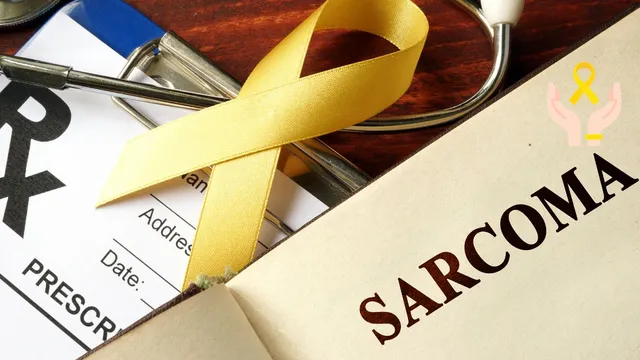- By Priyanka Munshi
- Thu, 29 Aug 2024 05:08 PM (IST)
- Source:JND
Understanding sarcoma is essential, especially when it affects children, as it is a rare form of cancer that starts in soft tissues—such as muscles, fat, or blood vessels—or in the bones. Despite being relatively rare, sarcomas can be extremely aggressive and difficult to detect since they can resemble other, less dangerous conditions and occur anywhere in the body.
Early detection significantly increases the likelihood of a successful treatment and recovery. Sarcomas in children can easily be mistaken for sports injuries or growing pains since they often cause symptoms like swelling, pain, or a lump. Recognizing the different types of sarcoma—such as Ewing's sarcoma and osteosarcoma, which often affect children—enables early identification of warning signs and prompt medical attention. In a conversation with Jagran English, Dr. Vasudha N.R., a consultant in pediatric oncology at Rainbow Children’s Hospital in Marathahalli, Bengaluru, discussed advanced treatments for children with sarcoma:
According to Dr. Vasudha, sarcoma refers to a broad group of cancers originating from bone or various connective tissues, including muscle, fat, tendons, nerves, or blood vessels. Traditional sarcoma treatments involve surgery, chemotherapy, and radiation therapy. However, recent advancements are revolutionizing therapy, providing new hope for young patients. This article explores the latest developments in sarcoma treatment, from precision medicine to innovative surgical techniques, and how these breakthroughs are improving outcomes and quality of life for children diagnosed with this challenging disease.
Also Read: Expert Lists Easy Tips To Manage Blood Sugar Levels During Festive Season
Precision Medicine: Tailoring Treatment To The Individual
Precision medicine is a significant breakthrough in pediatric sarcoma treatment. This approach involves analyzing the genetic and molecular profile of both the tumor and the patient. By understanding the specific genetic mutations or alterations driving the cancer, targeted therapies can be developed to directly address these abnormalities. For example, drugs like tyrosine kinase inhibitors can inhibit specific pathways that promote tumor growth, potentially enhancing treatment effectiveness while reducing side effects compared to traditional methods. Although targeted therapies hold great promise, ongoing clinical trials are essential to fully understanding their efficacy and potential.
Immunotherapy: Harnessing The Body's Immune System
Immunotherapy represents a major advance in pediatric sarcoma care by utilizing the body's immune system to recognize and destroy cancer cells. Recent innovations include checkpoint inhibitors, which prevent cancer cells from evading immune detection, and CAR-T cell therapy, which modifies a patient's T cells to more effectively target and eliminate cancer. These therapies have shown promise in treating various cancers and are increasingly being explored for their potential in sarcomas.
Innovative Chemotherapy Protocols
Chemotherapy has long been a cornerstone of sarcoma treatment, but recent advancements are enhancing its effectiveness and reducing its side effects. New strategies, such as dose intensification and combination therapy, aim to improve treatment response and lower the risk of recurrence by administering multiple drugs simultaneously. Additionally, researchers are developing personalized chemotherapy regimens based on the tumor’s genetic profile, allowing for more precise targeting of cancer cells while sparing healthy tissues.
Advances In Surgical Techniques
Surgery remains a critical component of sarcoma treatment, and new advances have made it even more effective. Minimally invasive procedures, including laparoscopic and robotic-assisted surgeries, allow for more precise tumor removal through smaller incisions. This approach not only speeds up recovery but also minimizes long-term complications. Furthermore, advanced imaging technologies, such as MRI and PET scans, assist surgeons in planning and executing more accurate resections, improving outcomes while preserving surrounding healthy tissues.
Also Read: Do You Know About the Link Between Urinary Tract Infections And Diet, According To Expert
Radiation Therapy: Enhancing Precision
Radiation therapy continues to play a vital role in sarcoma treatment, particularly as an adjunct to surgery. One promising development is proton beam therapy (PBT), which allows for more precise radiation delivery, minimizing damage to surrounding healthy tissues. PBT is especially beneficial for tumors located in anatomically challenging areas where complete surgical resection is difficult.
Dr. Vasudha concluded that recent advances in pediatric sarcoma treatment are significantly improving patient care. Precision medicine offers personalized therapies based on the genetic makeup of tumors, while immunotherapy empowers the immune system to combat cancer more effectively. Innovative chemotherapy protocols and advanced surgical techniques further enhance treatment efficacy and patient outcomes. These advancements not only improve survival rates but also enhance the quality of life for young patients, offering renewed hope for a brighter future in the fight against sarcoma.

